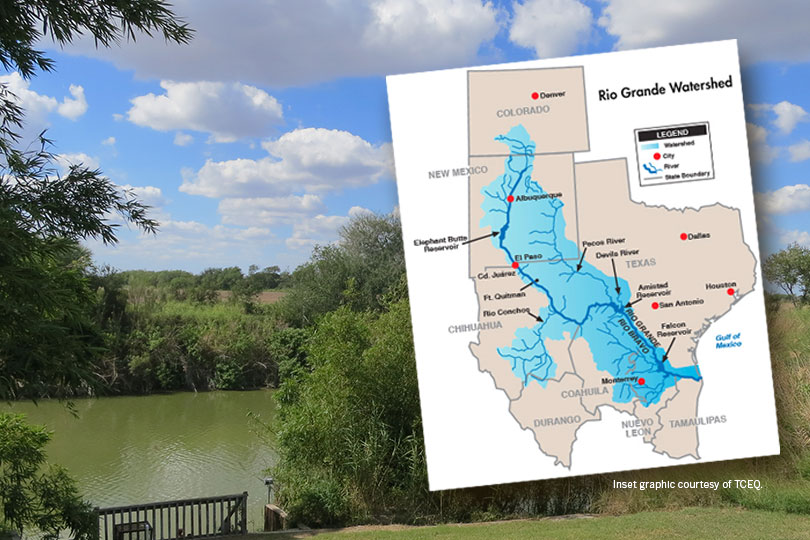By Jessica Domel
Multimedia Reporter
A long-standing water rights dispute between Texas and New Mexico may soon be heard by the U.S. Supreme Court (SCOTUS).
According to court documents, the state of Texas filed a complaint against New Mexico alleging the state violated the Rio Grande Compact of 1939, which caused “grave and irreparable injury to Texas.”
“New Mexico has, contrary to the purpose and intent of the Rio Grande Compact, allowed and authorized Rio Grande Project water intended for use in Texas to be intercepted and used in New Mexico,” Texas’ complaint stated.
Texas alleges New Mexico has repeatedly violated its obligations under the compact by allowing diversions of surface and underground water below Elephant Butte Dam for use in New Mexico, which depleted the water available to users in Texas.
“The State of New Mexico has allowed and authorized the diversion, extraction and use in New Mexico of Rio Grande Project water that has been allocated to Texas,” Texas’ complaint stated. “These diversions, extractions and use include Rio Grande Project return flows and other underground water that is hydrologically connected to the Rio Grande, and to which the United States has superior rights, including the right to deliver that water to Texas.”
The brief asks SCOTUS to use its original jurisdiction to hear the case and determine the enforcement of rights as previous interactions between the states did not work.
Texas reported, in its brief, the two states tried to resolve the issue but “fundamental differences” between interpretations of the compact have the pair at an impasse.
“The Rio Grande is the primary, at some places the only, source of supply for agricultural lands within Texas that are the intended beneficiaries of Texas’ allocation of Rio Grande water,” Texas’ complaint stated. “In addition, the Rio Grande Project water supply constitutes, on average, 50 percent of the annual water supply for the city of El Paso.”
New Mexico asserts in response to Texas’ concerns that the pumping of underground water in southern New Mexico is not affected by the Rio Grande Compact and it has no obligation to ensure Texas’ allocation of water at the New Mexico-Texas state line.
“So long as New Mexico refuses to acknowledge its Rio Grande Compact obligations to Texas, no amount of negotiation or mediation can address Texas’ claims,” Texas’ complaint stated. “Furthermore, so long as the matter continues to be unresolved by the court, New Mexico can simply continue to divert, pump and use water in excess of Rio Grande Compact apportionment, and capture Rio Grande Compact water allocated to Texas, to the direct, immediate and irreparable injury to Texas’ Compact rights.”
The compact was signed by Colorado, New Mexico and Texas on March 18, 1938 to protect the integrity and operation of the Rio Grande Project. Its goal is to ensure and protect shared rights of the river between the states.
The treaty was approved by Congress in 1939.
The compact requires Colorado to deliver water in the Rio Grande at the Colorado-New Mexico state line in preset quantities determined by stations along the river that measure water flow.
New Mexico is then obligated to deliver water in the river to the Elephant Butte Reservoir for Texas users based on index flows of the river.
The reservoir is the primary water storage location for the Rio Grande Project and its users.
SCOTUS is scheduled to hear exceptions to an interim report filed by the special master assigned to the case in due course.
The case was first docketed with SCOTUS in January 2013. It’s unclear if, and when, a decision will be handed down.

